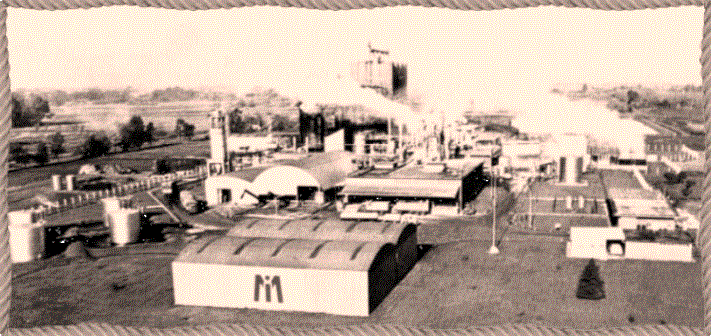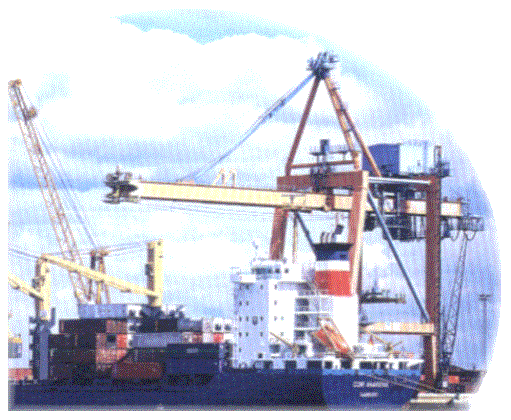HISTORY OF THE CHAMBER
On July 27th 1973 CAFAGDA
was officially founded. A short time afterwards it obtained legal
recognition and its Board of Directors designated and entitled Mr.
Sofocles Georgalos as the Chambers' first president.
A few years later Industrias de Maiz replaced Staley as a
member company and Glucovil (currently Cargill) also became
a chamber associate. Misky later on joined the Chamber.
By 1996 Productos de Maíz joined after Refinerías
de Maiz, and as of the 2000 merge of both companies, Productos
de Maíz. Nowadays Ingredion Argentina is the company member of the Chamber. |
 |
Chacabuco
Factory... |
During the first part of
1986 CAFAGDA inaugurated its current offices at Maipú 459
in the city of Buenos Aires, and almost at the same time the administration
was restructured and a stable operational management was set up,
dedicated to providing and extending services provided for member
companies.
Up until 1990 the Chamber
actively participated in lobbying for the industry it represents
in topics such as price arrangements and regulations.
From that year onwards CAFAGDA
is dedicated to more administrative and technical activities that
have been coordinated, permitting the Chamber to carry on more permanent
tasks in what regards foreign trade, bromatological aspects and
food regulations.
The Chamber also actively
participates in integration activities that take place among nations
in South America, and CAFAGDA works towards developing new markets
for Chamber products through its member-companies. The Chamber has
also been an active actor in the MERCOSUR agreements and forums
that arise.
ACTIVITIES THE CHAMBER IS DEDICATED
TO
Some of the activities the
Chamber provides are as follows:
Internal Trade: information
flow, and costs and prices evolution analysis. Analysis of service
costs. Follow-up of competitive and competitor prices. Research
and negotiations for introducing amendments to the Argentine Food
Code.
 |
Foreign Trade: Statistics
on imports and exports of products and byproducts handled by
the industry. Follow-up on Customs legislation. Analysis of
Custom tax treatment of products the member companies produce.
Participation in MERCOSUR negotiations as well as other integration
forums and new business negotiations. |
Cereal Business:
stock analysis and study of the geographic distribution of cereal
stock. Participation in Red de Tecnología de Postcosecha
de Granos (Interest-based net dedicated to post-harvest grains).
Relations with INTA (National Institute of Agricultural Technology),
INTI (National Institute of Industrial Technology), SENASA, Secretariat
of Agriculture, etc. Participation in the Cereal Exchange Market
as an adhered entity, and also as part of the Board of Directors.
Active participation in proceedings regarding corn standard definitions.
Cost analysis of grains. Statistics on sowing, reaping and stock.
Develop of quick measurement systems on aflatoxins.
Legislation: follow-up on projects
presented to Argentine Congress on topics of interest of the CAFAGDA
sector. Follow-up on legislation that involves the business. Participation
in the Federación de la Industria de Productos Alimenticios
(representative of the Food Products Industry owners) in regards
to labor agreements for the sector.
One of the main priorities of the Chamber
as an institution is to constantly adapt its operational structure
and work flow in order to meet needs and circumstances that arise
in this dynamic business.
The objective of Chamber is to continue finding ways to extend services
to member companies, in full use of all available resources.
CURRENT
SITUATION OF OUR INDUSTRY IN ARGENTINA
Although this same industry is
and has been strongly subsidized in Europe, in Argentina business
has developed comfortably on the domestic market and no need for
government subsidies has been demanded.
In the last few years neighboring
markets have been lured back to Argentine production. These markets
had lost ground to European items strongly subsidized, thus curbing
Argentine exports.
Thence the sector has been able
to rapidly adapt to changes in the economy, integrating successfully
to globalized business without any need for subsidies or protectionism.
Since the majority of these transformation
processes have only recently been developed worldwide (during the
80s) hand in hand with bioengineering, prominant technological levels
have had to be reached; thus all machinery and installations at
production plants are up to international standards.
The manufacturers have high tech
laboratories in what regards scientists and equipment and instruments
used.
Finally it must be mentioned that investment in technology in this
industry is significantly expensive. For example, if you want to
install a medium size plant with a milling capacity in the order
of 400/500 tons daily, the total investment is around 20 million dollars.
This figure includes machinery, buildings, installations and all
the services required to operate the plant.
So as is clearly visible from the above, it is an industry that
requires intensive capital and technology in order to continue in
state of the art operations.

